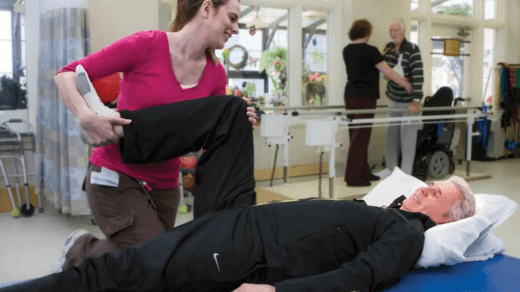Rehabilitation for Multiple Sclerosis: Enhancing Mobility

Rehabilitation for Multiple Sclerosis (MS) is a critical approach that focuses on improving the mobility and overall well-being of individuals living with this chronic neurological condition. In this discussion, we’ll explore 15 pros and 15 cons of rehabilitation for MS, emphasizing the significance, benefits, and challenges associated with this specialized form of care.
Pros of Rehabilitation for Multiple Sclerosis:
- Enhanced Mobility: Rehabilitation aims to improve and maintain mobility in individuals with MS.
- Customized Programs: Treatment plans are tailored to address the unique needs and symptoms of each patient.
- Physical Therapy: Rehabilitation includes physical therapy to strengthen muscles and improve balance.
- Occupational Therapy: Occupational therapists help individuals adapt to daily challenges.
- Assistive Devices: Rehabilitation experts recommend and provide assistive devices to aid mobility.
- Pain Management: Strategies for managing pain and discomfort are addressed in rehab.
- Improved Quality of Life: Successful rehabilitation often leads to an improved overall quality of life.
- Emotional Support: Rehabilitation includes emotional support to cope with the challenges of MS.
- Cognitive Rehabilitation: MS-related cognitive impairments are addressed in some programs.
- Resilience Building: Rehabilitation helps individuals develop resilience to manage MS symptoms.
- Family Education: Family members may receive education about MS and how to support their loved ones.
- Social Interaction: Group therapy or support programs promote social engagement and emotional well-being.
- Functional Restoration: Rehabilitation aims to restore the functionality of individuals with MS.
- Fosters Independence: Patients regain or improve their ability to perform daily activities independently.
- Individualized Approach: Rehabilitation is personalized to the specific needs and goals of each patient.
Cons of Rehabilitation for Multiple Sclerosis:
- Complexity: MS is a complex condition, and rehabilitation can be multifaceted.
- Time-Consuming: Rehabilitation programs may require a significant time commitment.
- Financial Costs: Medical bills, therapy expenses, and potential loss of income can be substantial.
- Emotional Intensity: Dealing with the challenges of MS can be emotionally taxing.
- Privacy Concerns: Rehabilitation may pose privacy concerns for some individuals.
- Resistance to Treatment: Some individuals with MS may resist rehabilitation, delaying recovery.
- Cultural Sensitivity: Programs may not always account for cultural differences.
- Limited Access: Not all individuals with MS have equal access to high-quality rehabilitation services.
- Dependency on Caregivers: Some individuals may become dependent on support systems.
- Frustration: Slow progress or setbacks can be frustrating for patients and providers.
- Invasive Procedures: Some forms of rehabilitation may involve invasive medical procedures.
- Lack of Long-Term Care: Some individuals with MS may require ongoing support beyond rehabilitation.
- Relapse Risk: Even after successful rehabilitation, there is a risk of relapse.
- Support Requirements: Maintaining mobility gains may demand ongoing support and effort.
- Emotional Strain on Family: Family members may experience emotional strain in supporting the rehabilitation process.
Rehabilitation for Multiple Sclerosis is a comprehensive approach to enhancing mobility and improving the quality of life for individuals living with this condition. The decision to pursue rehabilitation should consider individual needs, circumstances, and the potential benefits and challenges associated with the process. With the right support and commitment, individuals with MS can experience improved mobility and overall well-being.



